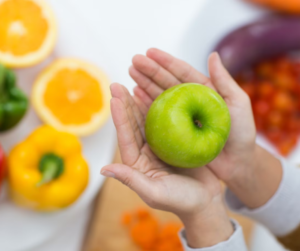Dialysis can occur in two types:
Hemodialysis, where a machine cycles the patient's blood out of their body, through an artificial renal system within the machine, and then back into their body; and Hemodialysis is typically done 3 times a week in a hospital setting.
peritoneal dialysis, where a special fluid is introduced into the abdominal cavity surrounding the patient's organs to absorb excess waste in the bloodstream. Peritoneal dialysis can be done at home overnight or during the day.










